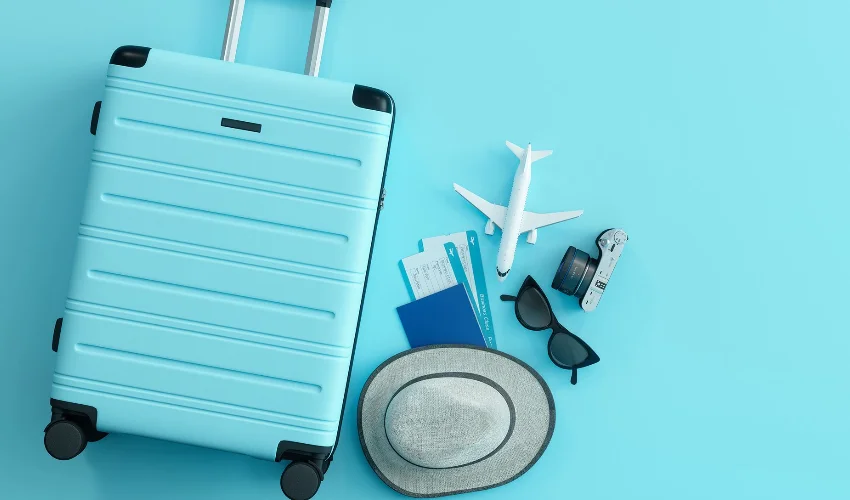Living with diabetes requires careful management and planning, particularly when traveling. It is crucial for individuals with diabetes to effectively communicate their needs to travel companions and hotel staff to ensure a safe and enjoyable trip. This article aims to provide comprehensive guidance and practical tips for diabetic patients and their caregivers on effectively communicating diabetes-related requirements during travel. By understanding the importance of clear communication, individuals with diabetes can optimize their travel experiences and maintain their health and well-being.
Understanding Diabetes
What is Diabetes?
Diabetes is a chronic condition characterized by high blood glucose levels resulting from the body’s inability to produce or effectively utilize insulin. Insulin is a hormone that helps regulate blood sugar. There are primarily two types of diabetes: type 1 and type 2. Type 1 diabetes typically occurs in childhood or adolescence and requires lifelong insulin therapy. Type 2 diabetes is more common and often develops later in life due to a combination of genetic and lifestyle factors.
Types of Diabetes
Type 1 diabetes, also known as insulin-dependent diabetes, requires daily insulin injections or the use of an insulin pump. Type 2 diabetes can be managed through lifestyle modifications, oral medications, or insulin therapy, depending on the individual’s needs. Other forms of diabetes include gestational diabetes (occurring during pregnancy) and prediabetes (a precursor to type 2 diabetes).
Diabetes Management
Effective diabetes management involves various aspects, including monitoring blood glucose levels, adhering to a healthy diet, engaging in regular physical activity, taking medications as prescribed, and managing stress. Individuals with diabetes must also be prepared for unexpected situations, especially when traveling, to ensure their health remains a top priority.
Importance of Communication
The Role of Communication in Diabetes Management
Clear and effective communication plays a vital role in managing diabetes, particularly while traveling. By effectively communicating their diabetes-related needs, individuals can educate others about their condition, seek support, and ensure their safety. Communicating openly also helps to alleviate anxiety and enables travel companions and hotel staff to provide necessary assistance and accommodations.
Effective Communication with Travel Companions
Educating travel companions about diabetes is essential for ensuring their understanding and support. Inform them about the basics of diabetes, including its symptoms, management strategies, and emergency procedures. Share information about blood glucose monitoring, insulin administration, and dietary considerations. Encourage open dialogue and address any concerns or misconceptions they may have.
Communicating with Hotel Staff
Informing hotel staff about your diabetes needs is crucial to ensure a comfortable stay. Contact the hotel in advance and discuss your requirements. This includes informing them about dietary restrictions or special meal preferences, refrigerator access for insulin storage, and the availability of medical facilities nearby. Clear communication allows the hotel staff to make appropriate arrangements and accommodate your needs effectively.
Communicating with Travel Companions
Educating Travel Companions about Diabetes
Before embarking on a trip, take the time to educate your travel companions about diabetes. Provide them with information about the signs and symptoms of hypo- and hyperglycemia (low and high blood sugar), and explain how to assist you during an emergency situation. Educate them on the importance of regular meal times, the need for snacks, and the significance of keeping a close eye on your well-being.
Sharing Diabetes Management Strategies
Communicate your diabetes management strategies to your travel companions. Explain the importance of monitoring blood glucose levels regularly and the potential need for insulin injections or medication administration. Discuss meal planning and the importance of balanced nutrition. Encourage them to support you in maintaining your routine and to be aware of any significant changes in your behavior or health.
Identifying Emergency Situations and Actions
Discuss emergency situations that may arise due to diabetes and provide your travel companions with instructions on how to handle them. Teach them how to recognize signs of low blood sugar (such as dizziness, confusion, or sweating) and what immediate actions to take, such as providing fast-acting carbohydrates like glucose tablets or fruit juice. Similarly, educate them about high blood sugar symptoms and the importance of seeking medical help if needed.
Establishing Communication Channels
Establish clear communication channels with your travel companions, such as sharing your contact information and emergency contact details. Consider using medical alert jewelry or carrying identification cards that indicate your diabetes condition. These measures can be helpful in emergency situations and can quickly inform medical professionals or others about your needs.
Communicating with Hotel Staff
Informing the Hotel in Advance
Contact the hotel before your arrival to inform them about your diabetes needs. Explain the nature of your condition and the specific accommodations required. Provide them with a clear timeline of your stay, any dietary restrictions or preferences, and any specific medical equipment or supplies you may need during your stay. This advance notice allows the hotel staff to make necessary arrangements and ensures a smooth experience.
Special Dietary Requirements
Clearly communicate your dietary requirements to the hotel staff. Inform them about any food allergies or restrictions you have, as well as your preferences for regular meal timings. Request healthy food options that align with your dietary needs and explain the importance of balanced meals. This communication will help the hotel staff caters to your nutritional requirements effectively.
Safe Storage of Insulin and Medications
Inform the hotel staff about the need for refrigerator access to store insulin and other medications that require temperature control. Explain the importance of proper storage to maintain the effectiveness of these medications. If necessary, provide written instructions on the storage requirements and precautions to be taken. This will help the staff understand the significance of keeping your medications safe and accessible.
Emergency Preparedness
Discuss emergency preparedness with hotel staff and ensure they are aware of the signs and symptoms of hypo- and hyperglycemia. Provide them with instructions on how to respond in emergency situations and inform them about the location of your diabetes supplies. Share your emergency contact information and emphasize the importance of seeking medical assistance promptly if needed.
Accessibility and Mobility Considerations
If you have mobility concerns related to your diabetes, such as the need for wheelchair access or assistance, communicate these needs to the hotel staff in advance. Inquire about the accessibility features of the hotel and any additional support they can provide to ensure your comfort and safety throughout your stay.
Traveling with Diabetes Supplies
Packing Essential Diabetes Supplies
When traveling, it is essential to pack all the necessary diabetes supplies. This includes an ample supply of insulin and medications, extra testing strips, lancets, and glucose monitoring equipment. It is advisable to pack more supplies than you anticipate needing, accounting for any unexpected circumstances or delays.
Medications and Prescriptions
Ensure that all your medications are properly labeled and carry a written prescription from your healthcare provider. This documentation can be helpful in case of any questions or concerns during security checks or if you need to replenish your supplies while away from home.
Blood Glucose Monitoring Equipment
Pack your blood glucose monitoring device, spare batteries, and any additional equipment you use for managing your diabetes. It’s also wise to carry a backup glucose meter in case of malfunctions or loss of the primary device.
Insulin Storage and Temperature Considerations
Insulin is sensitive to temperature, so it’s crucial to store it properly during travel. Use an insulated travel case or cooler bag with ice packs to keep insulin at the recommended temperature range. Avoid storing insulin directly on ice or exposing it to extreme heat or direct sunlight.
Airport Security and Regulations
Be aware of airport security regulations regarding diabetes supplies. Declare your diabetes-related items when going through security and follow the guidelines provided by the authorities. You may request a visual inspection of your diabetes supplies rather than sending them through X-ray machines or full-body scanners, as these devices can potentially affect the functionality of insulin pumps or glucose monitoring devices.
Resources and Support
Diabetes Associations and Organizations
There are numerous diabetes associations and organizations that provide valuable resources and support for individuals with diabetes. Research and connect with reputable organizations such as the American Diabetes Association, Diabetes UK, or the International Diabetes Federation. These organizations offer educational materials, guidelines, and forums where you can seek information and support.
Online Diabetes Communities
Engaging with online diabetes communities can be beneficial for connecting with others who share similar experiences. These communities provide a platform to ask questions, share insights, and seek advice from individuals who have firsthand knowledge of managing diabetes while traveling. Be cautious of misinformation and rely on verified sources when seeking guidance.
Local Medical Facilities and Services
Research the availability of medical facilities, clinics, and hospitals at your travel destination. Note down the contact information and addresses of nearby healthcare providers, should the need arise. It’s also advisable to carry a summary of your medical history, including your diabetes management plan, in case of an emergency.
Traveling with diabetes requires effective communication with travel companions and hotel staff. By educating others about your diabetes needs, sharing management strategies, and packing essential supplies, you can ensure a safe and enjoyable travel experience. Clear and concise communication plays a crucial role in managing diabetes while traveling. By implementing the strategies and tips provided in this article, individuals with diabetes and their caregivers can navigate the challenges of traveling while effectively managing their condition.




